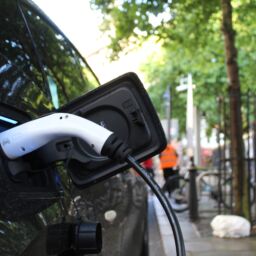
As electric vehicles (EVs) become increasingly prevalent, property managers, retailers, and fleet operators are presented with both challenges and opportunities in integrating EV charging infrastructure. Adopting EV charging solutions not only supports sustainability goals but also offers potential revenue streams and operational efficiencies. SCF has become a notable player in this sector, offering innovative financing solutions for commercial solar and EV charging projects.
Understanding Charging-as-a-Service
Charging-as-a-Service (CaaS) is a business model that allows entities to provide EV charging solutions without significant upfront investments. Under this model, third-party providers handle the installation, operation, and maintenance of charging stations, while businesses pay for the electricity consumed. This approach minimizes capital expenditures and simplifies the integration of EV charging infrastructure.
Benefits for Property Managers and Retailers
- Enhanced Customer Experience and Attraction
Installing EV charging stations can significantly enhance the customer experience by providing convenient charging options. For instance, shopping centers and malls that offer charging facilities attract EV-driving customers, potentially increasing foot traffic and sales. The presence of chargers can also make properties more appealing to potential tenants seeking modern amenities. - Revenue Generation and Partnerships
EV charging stations present opportunities for new revenue streams. Businesses can partner with charging service providers to share in the revenue generated from charging fees. For example, convenience store chains like 7-Eleven have begun developing their own charging networks to capture a greater share of the revenue and integrate charging into their broader business models. - Alignment with Sustainability Goals
Offering EV charging aligns businesses with environmental sustainability initiatives, enhancing brand image and meeting the growing consumer demand for eco-friendly practices. Studies have found that customers are willing to spend more to charge in public, helping to offset building management system costs.
Considerations for Fleet Operators
- Operational Efficiency
Integrating EVs into fleets can lead to operational efficiencies, including reduced fuel costs and maintenance expenses. Smart charging solutions enable fleet operators to schedule charging during off-peak hours, reducing energy costs and minimizing grid impact. For example, Prologis offers depot charging solutions that allow fleets to charge vehicles at their facilities, optimizing operations and reducing costs. - Regulatory Compliance
As governments implement stricter emission regulations, transitioning to electric fleets helps operators comply with mandates and avoid potential penalties. In California, for instance, the Advanced Clean Fleets Regulation requires fleet operators to begin electrifying their fleets, presenting both challenges and opportunities for businesses. - Scalability and Flexibility
EV charging solutions should be scalable to accommodate the growth of electric fleets. Charging providers offer adaptable charging solutions, including dedicated charging hubs and integration with public networks, ensuring that fleet operators can meet increasing charging demands efficiently.
Financial Incentives and Support
Financial incentives play a crucial role in offsetting the costs of installing EV charging infrastructure. Government programs, such as tax credits and rebates, are available to support businesses in adopting EV charging solutions. For example, the Alternative Fuel Infrastructure Tax Credit offers up to 30% off charging equipment costs, capped at $100,000 if the installation meets specific requirements.
SCF’s Role in Facilitating EV Charging Solutions
SCF specializes in providing financing solutions for commercial solar and EV charging projects, making it easier for businesses to adopt sustainable energy practices without significant upfront costs. Our Power Purchase Agreement (PPA) model allows businesses to install solar panels and EV charging stations with no initial investment, paying only for the energy consumed. This approach aligns with the Charging-as-a-Service model, offering financial flexibility and promoting the adoption of renewable energy sources.
Key Features of SCF’s Financing Solutions
- No Upfront Capital Expenditure: Businesses can implement solar and EV charging solutions without significant initial investments, preserving capital for other operational needs.
- Simplified Implementation: SCF manages the entire process, from project assessment to construction, ensuring a seamless transition to renewable energy solutions.
- Long-Term Savings: By adopting solar and EV charging infrastructure, businesses can reduce energy costs over time, benefiting from predictable and potentially lower energy rates.
- Environmental Impact: Transitioning to solar and EV charging supports sustainability goals, reducing carbon footprints and promoting eco-friendly practices.
Integrating EV charging infrastructure through models like Charging-as-a-Service offers significant benefits for property managers, retailers, and fleet operators, including enhanced customer experiences, new revenue opportunities, and alignment with environmental objectives. Our financing can further facilitate the adoption of these technologies, making it accessible and financially viable for businesses to transition to sustainable energy practices. As the adoption of electric vehicles accelerates, embracing EV charging solutions will be a strategic move for businesses aiming to stay competitive and environmentally responsible.










